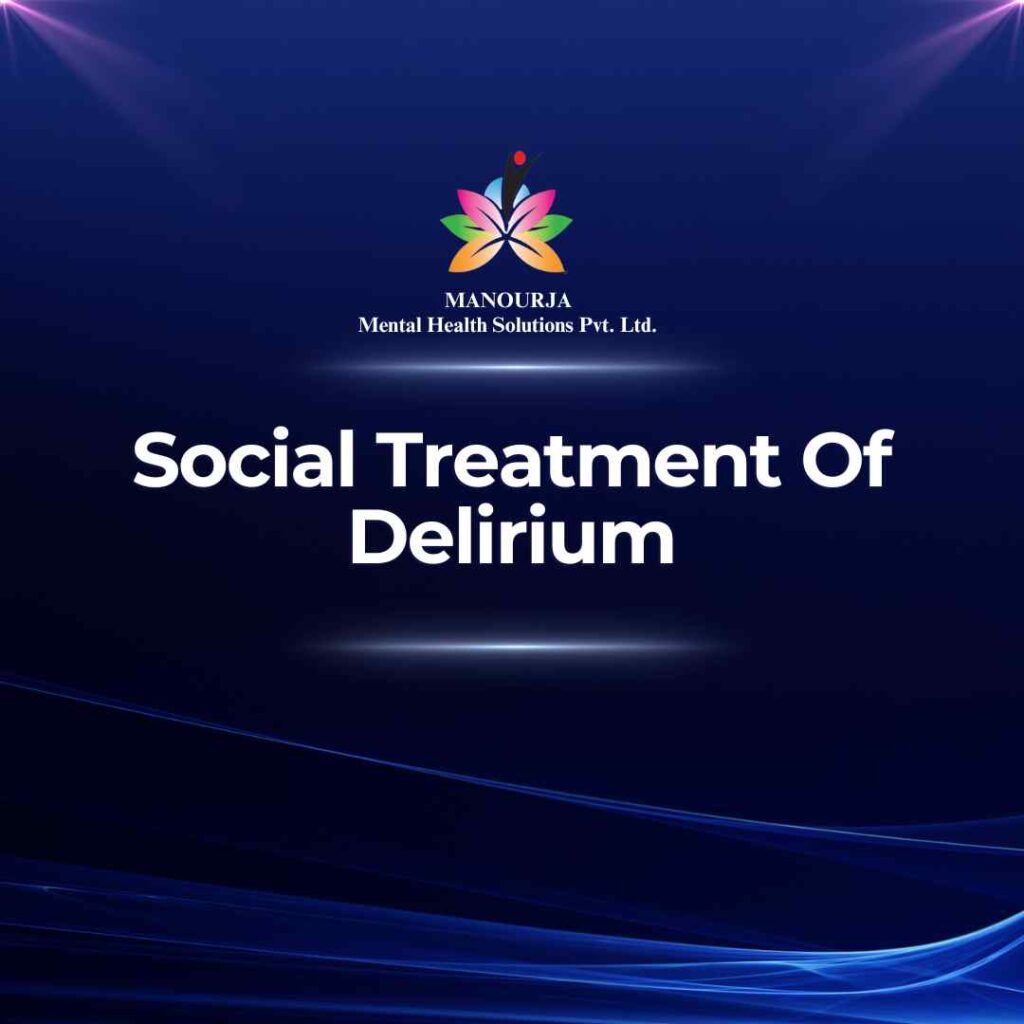Social Treatment for Delirium

Social treatment of delirium involves strategies to provide emotional support, enhance social interactions, and create a supportive environment for individuals affected by delirium. While it’s crucial to address the medical and psychological aspects of delirium, the social dimension is equally important for overall well-being.
Here are key components of social treatment for delirium:
Family and Caregiver Involvement
- Encourage the active participation of family members and caregivers in the care process. Their understanding and support can significantly impact the individual’s experience and recovery.
Communication
- Foster clear and effective communication among healthcare professionals, the individual, and their support network. Keeping everyone informed about the individual’s condition and progress is essential for a cohesive approach to care.
Emotional Support
- Provide emotional support to individuals experiencing delirium. Reassurance, empathy, and a compassionate approach can help alleviate anxiety and fear.
Social Interaction
- Facilitate positive social interactions within the individual’s capabilities. Encourage visits from friends and family, keeping in mind the need for a calm and supportive environment.
Therapeutic Activities
- Introduce therapeutic activities that promote engagement and social interaction. These may include art therapy, music therapy, or activities tailored to the individual’s interests and abilities.
Rehabilitation Programs
- Collaborate with rehabilitation specialists, including occupational therapists and social workers, to develop personalized rehabilitation programs. These programs can address functional impairments and support the individual’s social integration.
Community Engagement
- Encourage participation in community activities when appropriate. Reconnecting with community resources and social networks can contribute to a sense of belonging and support.
Education and Awareness
- Raise awareness about delirium among the individual’s social circle to reduce stigma and foster understanding. Educated and informed support networks can contribute positively to the recovery process.
Planning for Transitions
- Involve family members and caregivers in planning for transitions, such as returning home from a healthcare facility. Ensuring a supportive environment at home is crucial for continued recovery.
Support Groups
- Connect individuals and their families with support groups or networks where they can share experiences, gain insights, and receive additional emotional support.
Cultural Sensitivity
- Be sensitive to the cultural background of the individual and their family. Understanding cultural preferences and practices can enhance communication and support.
Social treatment is an integral part of the holistic care approach for individuals with delirium. Collaborating with a multidisciplinary team that includes healthcare professionals, social workers, and family members ensures a comprehensive and supportive environment that addresses the diverse needs of the individual.
At MANOURJA, we believe in the transformative power of counseling. Our experienced therapists offer a safe and supportive space where you can explore your thoughts, emotions, and challenges. Through personalized counselling sessions, we’ll work together to develop coping strategies, build resilience, and achieve lasting positive change. Discover the path to a healthier, happier you with MANOURJA counselling services.
MANOURJA Rehabilitation Services
At MANOURJA, we’re dedicated to helping you in rebuild your life, after difficult times. Our rehabilitation services focus on understanding what you need to move forward, whether you’re recovering from addiction, trauma, or any psychological – social challenges. We create personalized plans, that are all about helping you, regain your strength and find hope again. With a caring team by your side, you’ll have the support to make real progress and take steps toward a brighter, healthier future.
